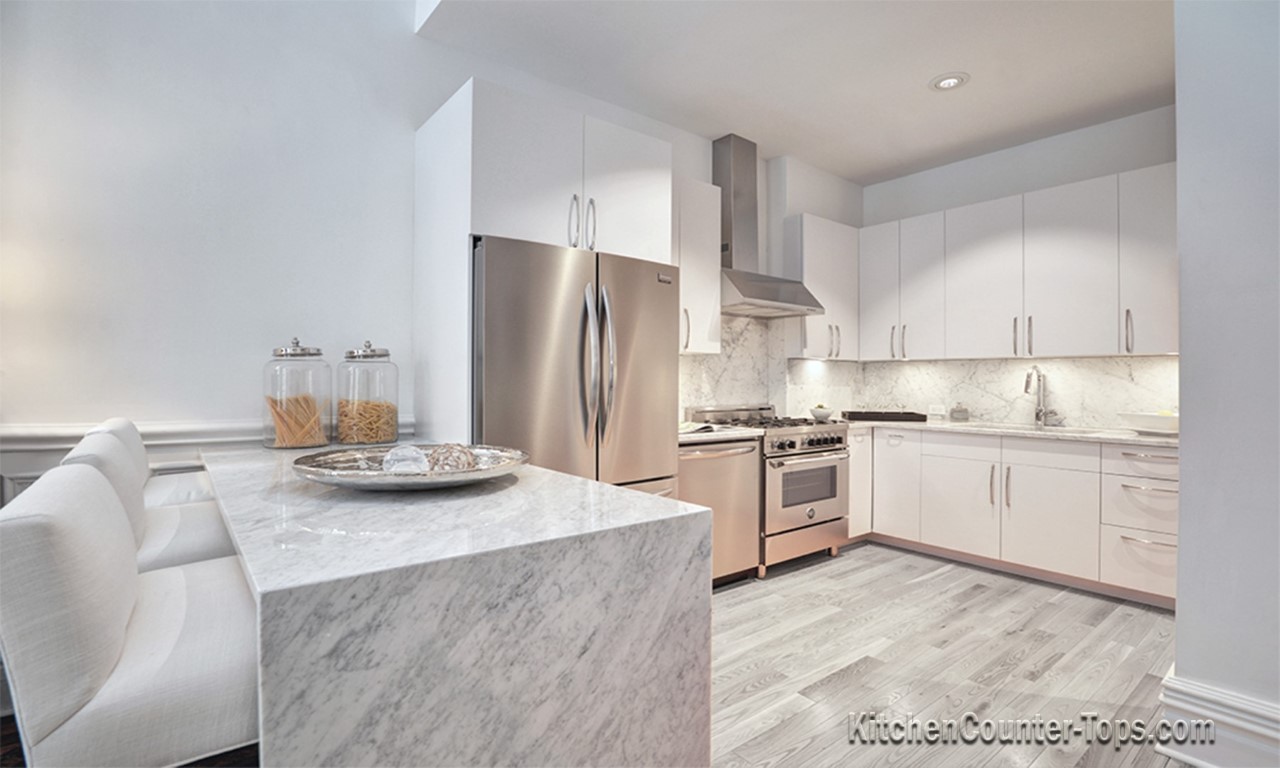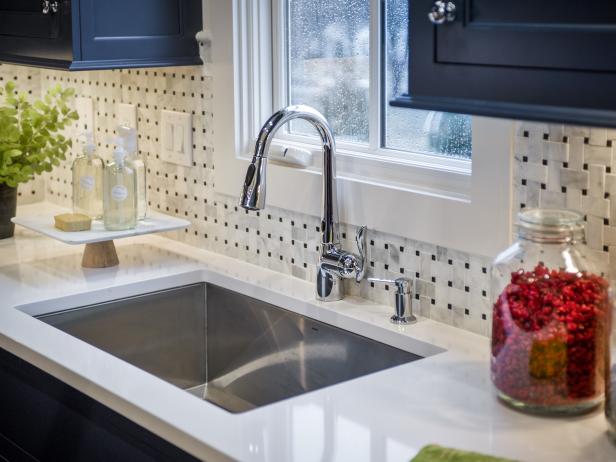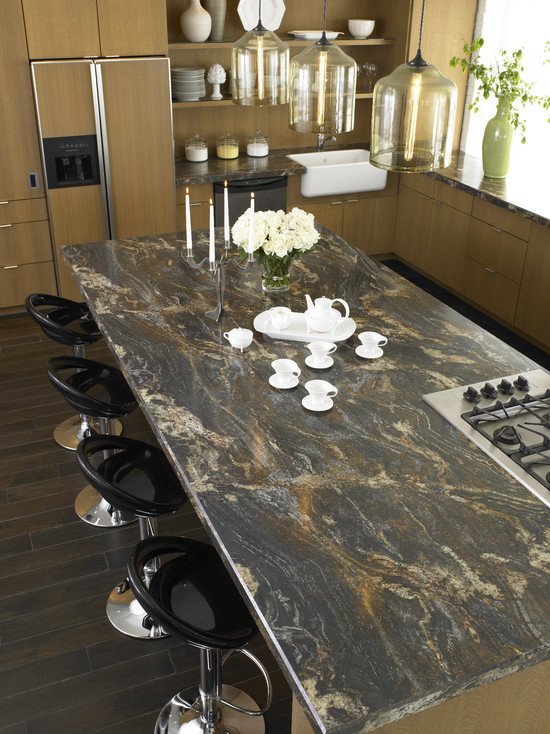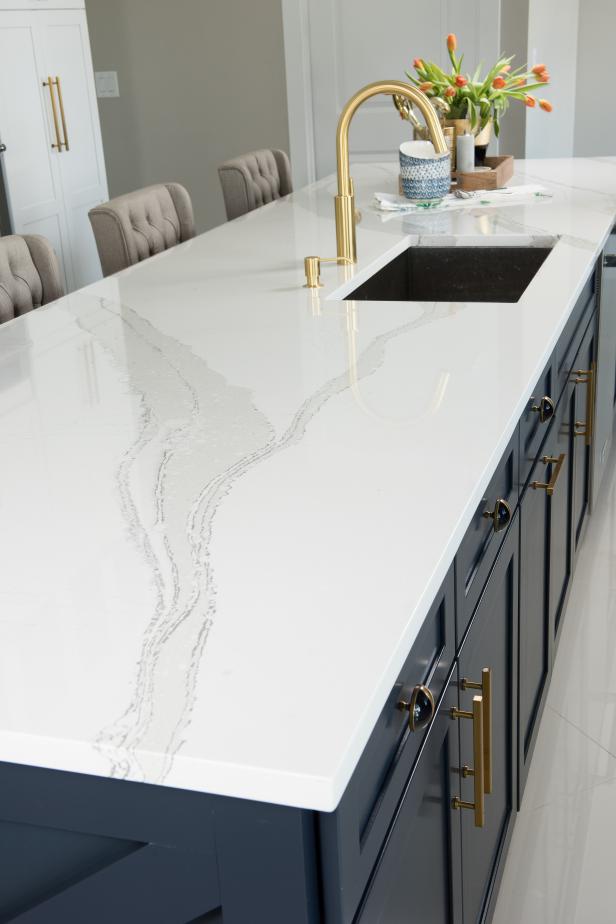A Modern Approach to Home Design
In recent years, engineered kitchen countertops have emerged as a popular choice for homeowners seeking a balance of aesthetics, durability, and affordability in their kitchen designs. Unlike traditional materials like granite or marble, engineered countertops are man-made, and crafted from a blend of natural stone aggregates, resins, and pigments. Today we will bring you to the world of engineered kitchen countertops, exploring their composition, benefits, installation process, and maintenance requirements.

Composition of Engineered Kitchen Countertops
Engineered kitchen countertops are typically composed of approximately 90% natural stone aggregates, such as quartz or granite, mixed with resins and pigments. This blend gives these countertops their unique properties, combining the beauty of natural stone with the flexibility and durability of synthetic materials. The exact composition may vary depending on the manufacturer and desired aesthetics, but the overarching principle remains consistent across different brands and types of engineered countertops.
One of the primary advantages of engineered countertops is their versatility in design. Manufacturers can customize the color, pattern, and texture of these countertops to mimic the look of natural stone or achieve unique, contemporary designs. Additionally, engineered countertops tend to be more uniform in appearance compared to natural stone, making them an attractive option for homeowners seeking consistency in their kitchen aesthetics.
Despite their synthetic components, engineered kitchen countertops offer exceptional durability and resistance to stains, scratches, and heat. The resin binding the stone aggregates together creates a non-porous surface that is highly resistant to moisture and bacteria growth, making engineered countertops an ideal choice for busy kitchens where hygiene is paramount.

Benefits of Engineered Kitchen Countertops
The popularity of engineered kitchen countertops can be attributed to several key benefits they offer to homeowners:
Durability: Engineered countertops are highly resistant to scratches, stains, and heat, making them suitable for everyday use in the kitchen.
Variety of Designs: With a wide range of colors, patterns, and textures available, homeowners can find engineered countertops to complement any kitchen style or design aesthetic.
Low Maintenance: Unlike natural stone countertops, which require periodic sealing and maintenance, engineered countertops are easy to clean and maintain with regular soap and water.
Cost-Effectiveness: While natural stone countertops can be expensive, engineered options offer a more affordable alternative without compromising on quality or aesthetics.

Installation Process of Engineered Kitchen Countertops
The installation of engineered kitchen countertops typically follows a series of steps to ensure a precise fit and durable finish:
Measurement and Template Creation: A professional installer will take precise measurements of the kitchen space and create templates to guide the fabrication process.
Fabrication: The engineered countertop materials are cut and shaped according to the templates, taking into account any customizations or edge treatments requested by the homeowner.
Preparation of the Substrate: The existing kitchen cabinets or substrates are prepared to support the weight of the countertops, ensuring a stable and level surface for installation.
Installation: The fabricated countertops are carefully placed and secured onto the substrate using adhesives or mechanical fasteners. The installer will ensure proper alignment and fit before making any final adjustments.

Maintenance Tips for Engineered Kitchen Countertops
While engineered kitchen countertops are known for their durability and low maintenance requirements, following these tips can help prolong their lifespan and preserve their appearance:
Regular Cleaning: Wipe down the countertops with a mild soap and water solution after each use to remove any spills or debris.
Avoid Harsh Cleaners: Refrain from using abrasive cleaners or scouring pads, as they can dull the surface and cause scratches over time.
Use Cutting Boards: Although engineered countertops are resistant to scratches, using cutting boards for chopping and food preparation can help prevent any potential damage to the surface.
Protect from Heat: While engineered countertops are heat resistant, it’s still advisable to use trivets or hot pads when placing hot pots and pans directly onto the surface to avoid any discoloration or damage.

Common Mistakes to Avoid
Ignoring Thickness Requirements: Ensure that the engineered countertops you choose are of adequate thickness to withstand the demands of daily use in the kitchen.
Neglecting to Consider Seam Placement: Proper placement of seams is crucial to achieving a seamless and aesthetically pleasing look. Work closely with your installer to determine the optimal seam locations.
Focusing Solely on Price: While cost is an important factor, prioritize quality and durability when selecting engineered countertops to ensure long-term satisfaction with your investment.
Skipping Professional Installation: Attempting to install engineered countertops yourself can result in costly mistakes and compromise the integrity of the installation. Hire experienced professionals for optimal results.
Are engineered countertops as durable as natural stone?
Engineered countertops offer comparable durability to natural stone, if not greater, thanks to their non-porous surface and resistance to scratches, stains, and heat.
Can engineered countertops be repaired if they are damaged?
Minor scratches or chips in engineered countertops can often be repaired by professionals using specialized techniques and materials.
Do engineered countertops require sealing like natural stone?
No, engineered countertops are non-porous and do not require sealing. Regular cleaning with soap and water is sufficient to maintain their appearance.
Can I install engineered countertops over existing laminate countertops?
In many cases, engineered countertops can be installed directly over existing laminate countertops, provided the substrate is in good condition and suitable for installation.
How long do engineered countertops typically last?
With proper care and maintenance, engineered countertops can last for many years, often outlasting natural stone countertops due to their durability and resistance to wear and tear.

Kitchen Countertops

Natural Agate, Bar Top Engineered stone countertops, Granite quartz countertops, Granite

Quartz Countertops Pros and Cons to Consider Before Making a Decision

Kitchen countertops – EleniDecor Shop

Beautiful, Stone Countertop Installation Samples

Which Countertops Are Most Expensive?

Related Posts:
- New Kitchen Countertop Trends
- Installing New Kitchen Countertops
- Pictures Of Kitchens With Soapstone Countertops
- Kitchen Countertop Styles
- How Much Do Quartz Kitchen Countertops Cost
- Sealing Granite Kitchen Countertops
- Live Edge Wood Kitchen Countertops
- Kitchen Laminate Countertops Ideas
- Laminate Kitchen Countertops Reviews
- Average Kitchen Granite Countertop Cost